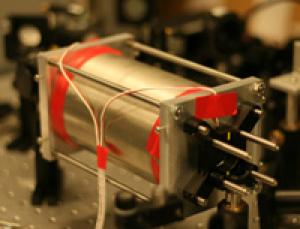Magnetoscope Monitor Measures Heart’s Magnetic Field to Detect Problems Early
While the ECG machine, whose steady beep and jagged line TV medical dramas long ago planted into the popular imagination,...

While the ECG machine, whose steady beep and jagged line TV medical dramas long ago planted into the popular imagination, remains the most common method for monitoring heart activity, a new device promises to bring that same reliability, but with a much higher resolution. And unlike the ECG, this new device doesn’t measure the electrical impulses flowing through the heart, but the magnetic field created by it.

Sensitive Magnetometer
The portable magnetometer, invented by scientists at the University of Leeds, England, measures minute fluctuations in the heart’s magnetic field so sensitively that it can detect heart problems in fetuses, as well as spot problems in adult hearts far earlier than an ultrasound or ECG. And the device is far cheaper than any of those other devices, too.
Like any object with an electric flow, the heart generates a magnetic field. Different heart problems alter this magnetic field in different ways. For instance, some patients with irregular heartbeat need to have one of the electrical nodes in their heart cauterized. Normally, doctors need to go through a process of trial and error to determine which node needs help. Using the portable magnetometer, though, doctors can pinpoint the right node immediately, cutting the time of the corrective procedure by 80 percent.
And since every organ in the body emits its own specific magnetic field, the device could potentially work on any area. The inventors believe that the magnetometer will be available for regular heart monitoring within three years, with similar devices geared towards measuring other organs following after that.